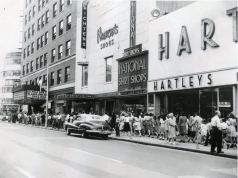Ukrainian chatter fills the air as parishioners settle into the chapel at St. Nicholas Ukrainian Orthodox Church. A little girl, about 7 years old, wanders the pews, greeting familiar faces while her mother prays. The service begins and over 50 voices sing in harmony.
After two hours and a half, they move from the chapel to a room next door to eat lunch together. Bowls of kapustnyak, a soup mainly consisting of sauerkraut, potatoes and herbs, are served alongside other traditional dishes as they celebrate Lent. Their tables are squished to the left side of the room as boxes of donations fill up the rest of the space.
The Cooper City church has been a tremendous support to the Ukrainian community, both next door and 5,000 miles away.
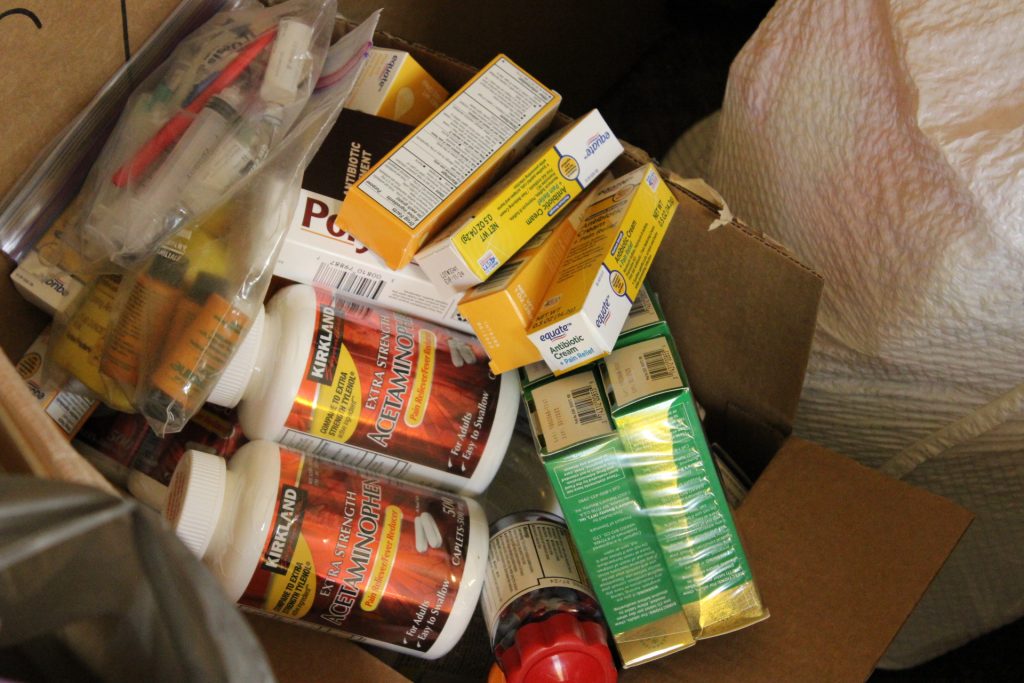
So far, the church has raised $63,000 as well as medical supplies, clothes, canned food and more that has been sent to friends in Poland who have transported it into Ukraine. Their first shipment safely arrived in late March.
“We started taking donations as soon as possible,” Iryna Maxfield, president of the church, says. “The first day of the war, we made a decision, we know for sure they will need our help and support.”
Fellow Ukrainians who offered to help the church took 22 pallets of donations to New York and shipped them to a small airport in Poland. From there, Ukrainian truck drivers transported the aid to a warehouse where they separated the material to distribute it to cities in Ukraine.
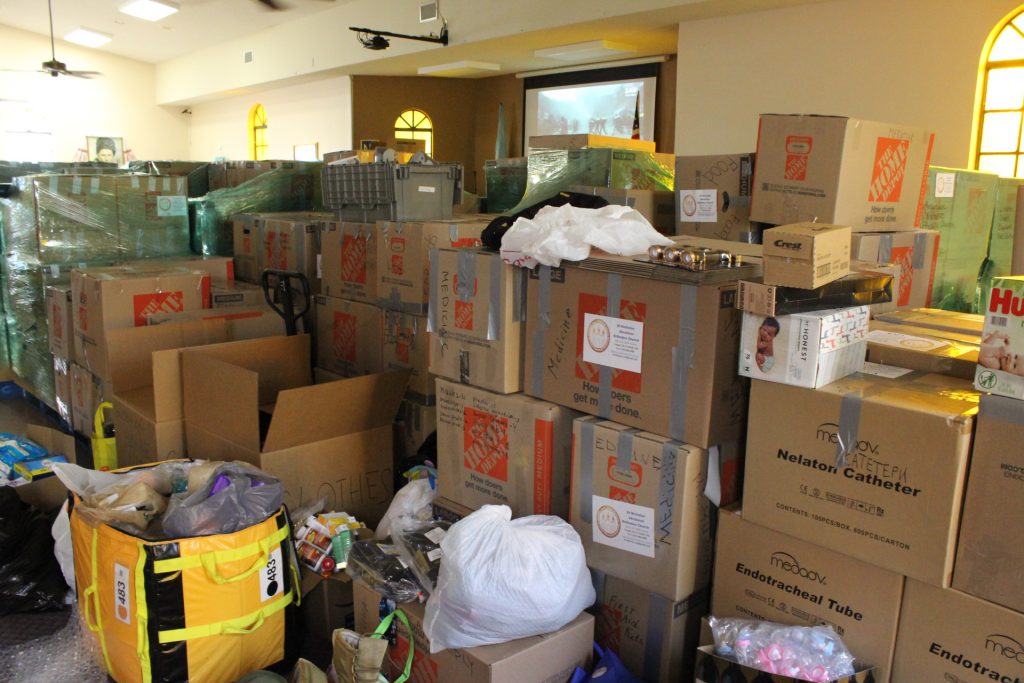
The church is looking for a sponsor to help them with the shipping costs.
With donations, the church also bought a small ambulance that volunteers take into Ukraine to transport sick children to hospitals in Kyiv or Lviv.
Church members could not fully comprehend what was happening when the war broke out.
“It was a huge shock and surprise for everyone, and we could not believe that,” Maxfield says. “When I saw that, knowing Putin’s personality, I knew it would be a devastating war, and I realized the first day when he started.”
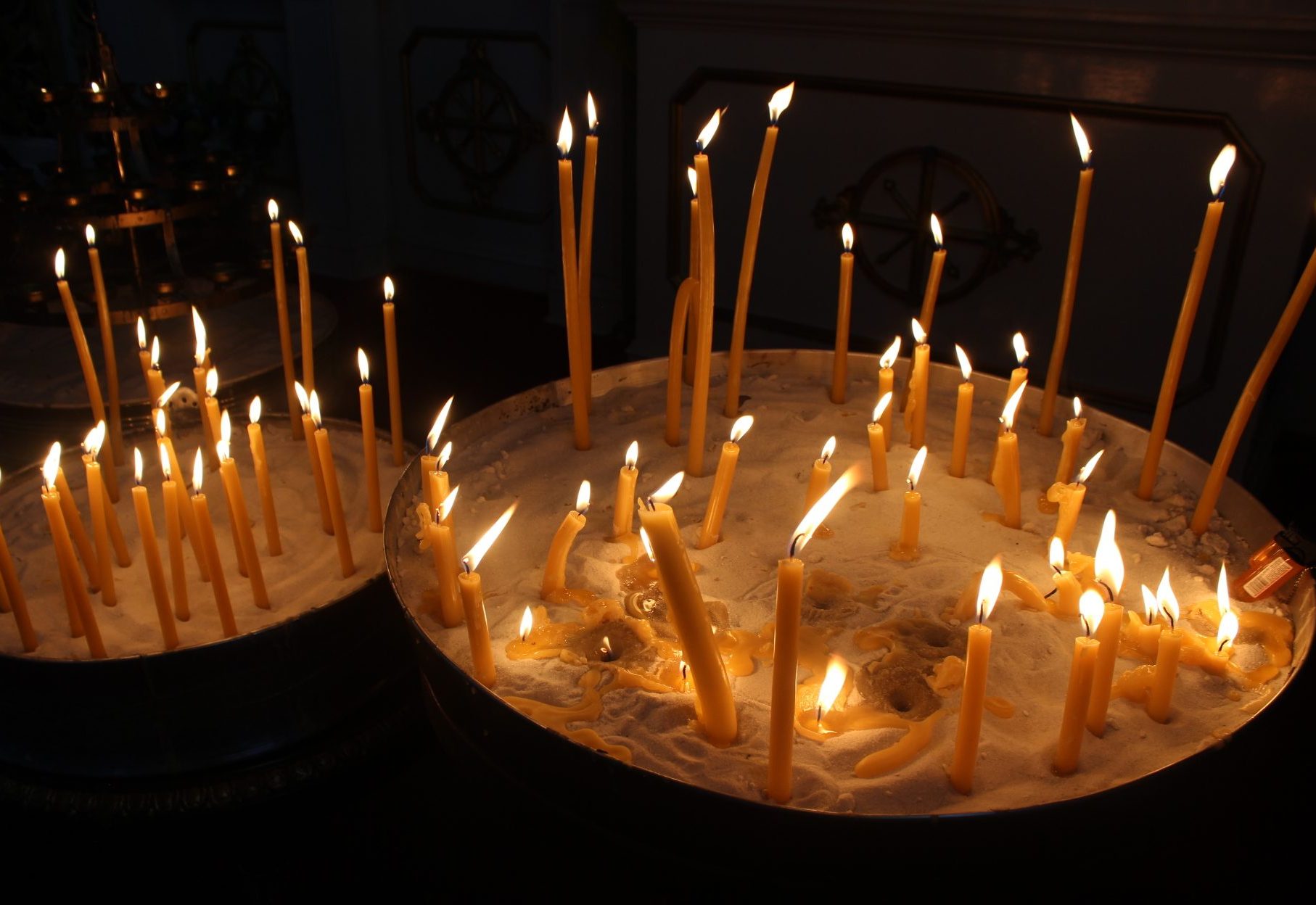

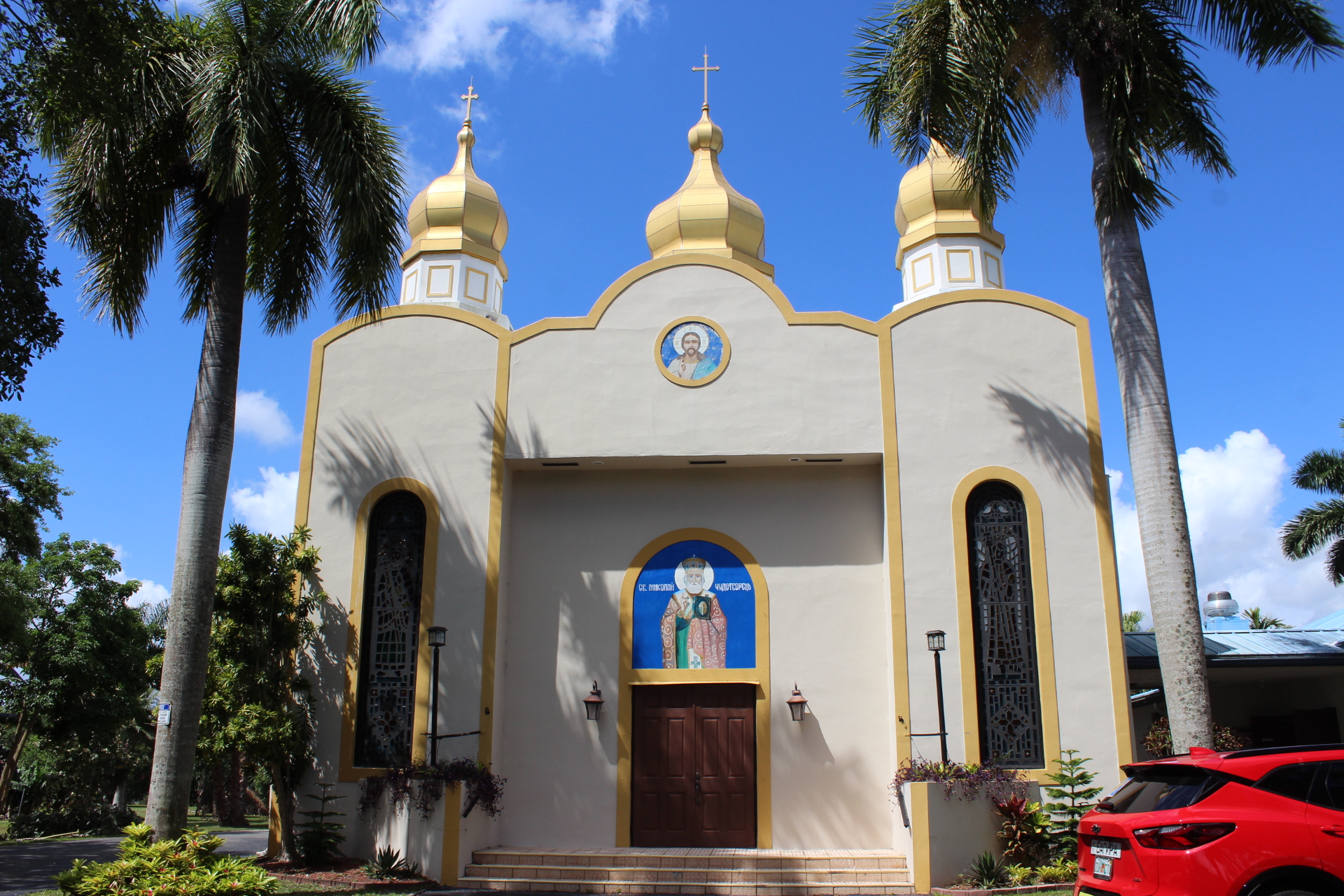
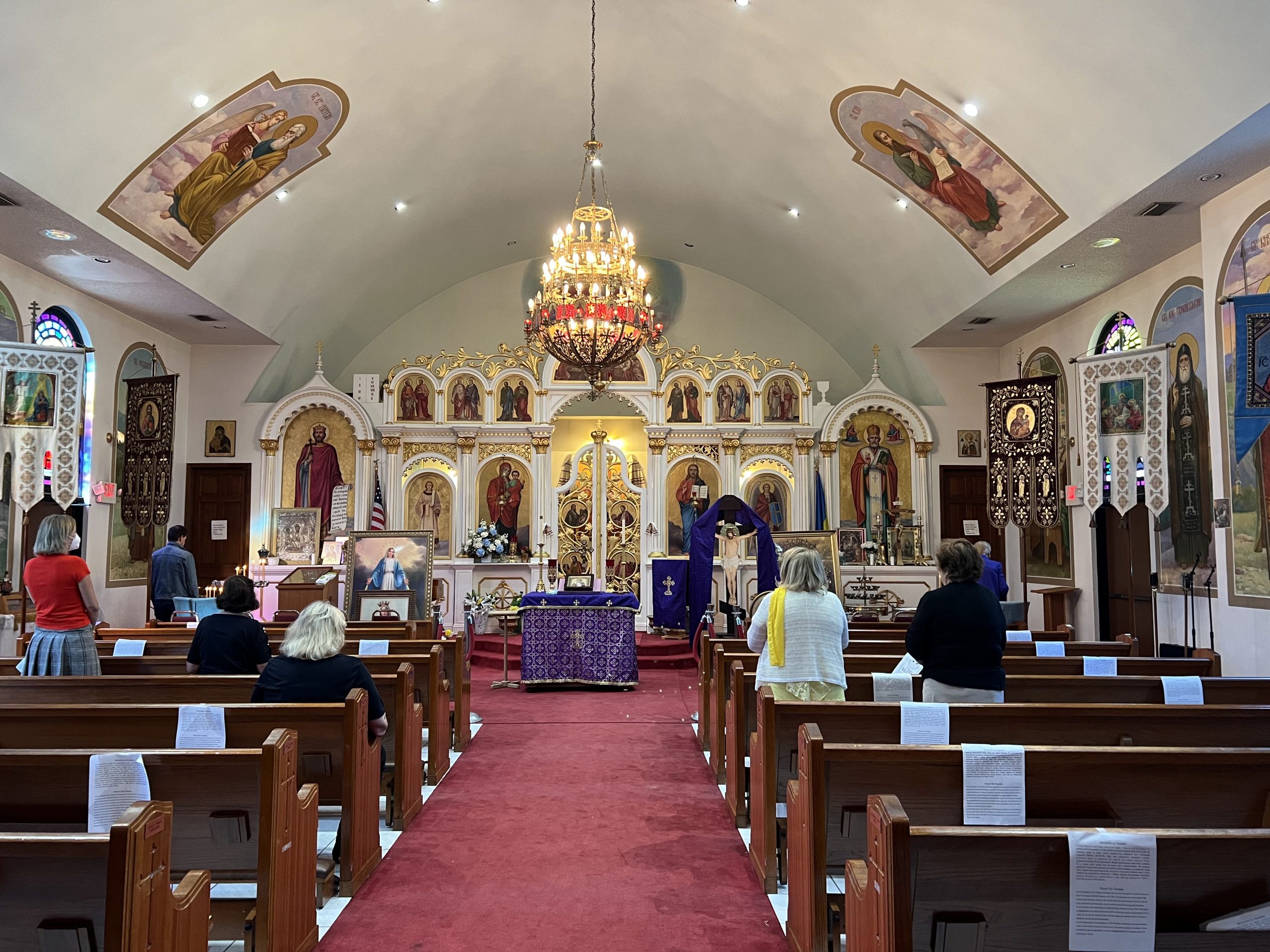
Victor Cocherha, who has belonged to the church for 35 years, wakes up at four in the morning every day to call his brother-in-law in Tovste, approximately 60 miles from Kyiv.
“He’s very nervous and stressed out with the situation,” Cocherha says. “It’s mostly the cruise missiles he’s afraid of and the bombs in the sky, not the boots on the ground because they haven’t reached his town yet, he can hear the bombs.”
Cocherha keeps offering to meet his brother-in-law in Slovakia and take him somewhere safe, but he declines because of his farm animals.
“We invited him to meet us at the border and we would take him but he says ‘I can’t leave because I got three goats that were just born’ and I’m going ‘Well, I don’t think they’d take the goats on the planes,’” Cocherha says.
Cocherha compared the fight in his country to the American Revolution fight for democracy.
“This is what we’re fighting for as well, this is our fight for democracy,” he says.
Newly-arrived Maryna Shkuro and her mother, Anna, escaped from Kyiv on the second day of the war.
“We were hiding in a basement, we heard all this bombing but what we heard on the second day, it was really close to us,” Shkuro, 32, says.
She fled with her mother the next day at 5 a.m. and headed to the Polish border. Crossing into Poland would have taken three days so they drove for another three days to the Hungarian border and waited for another entire day in line.
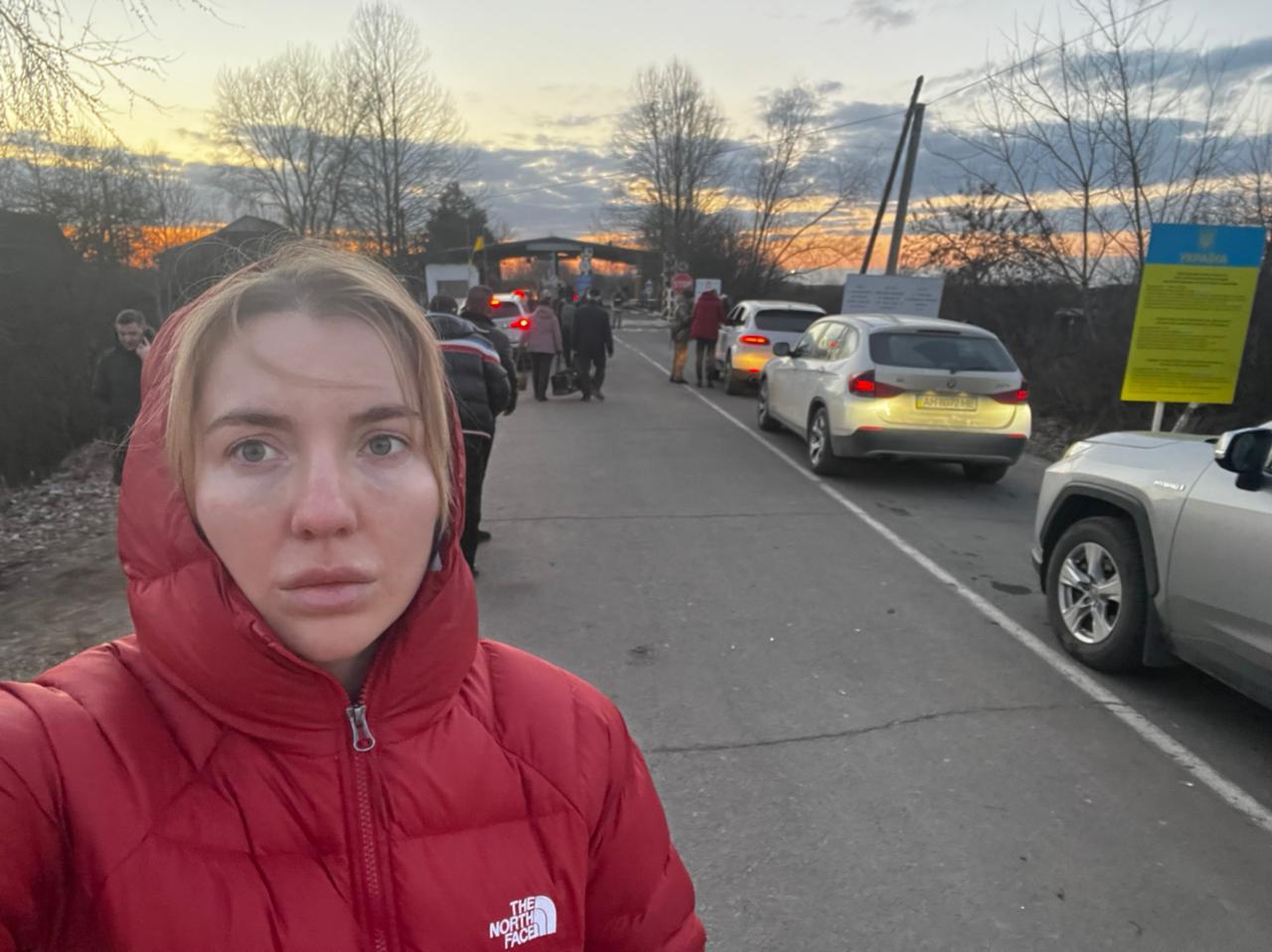
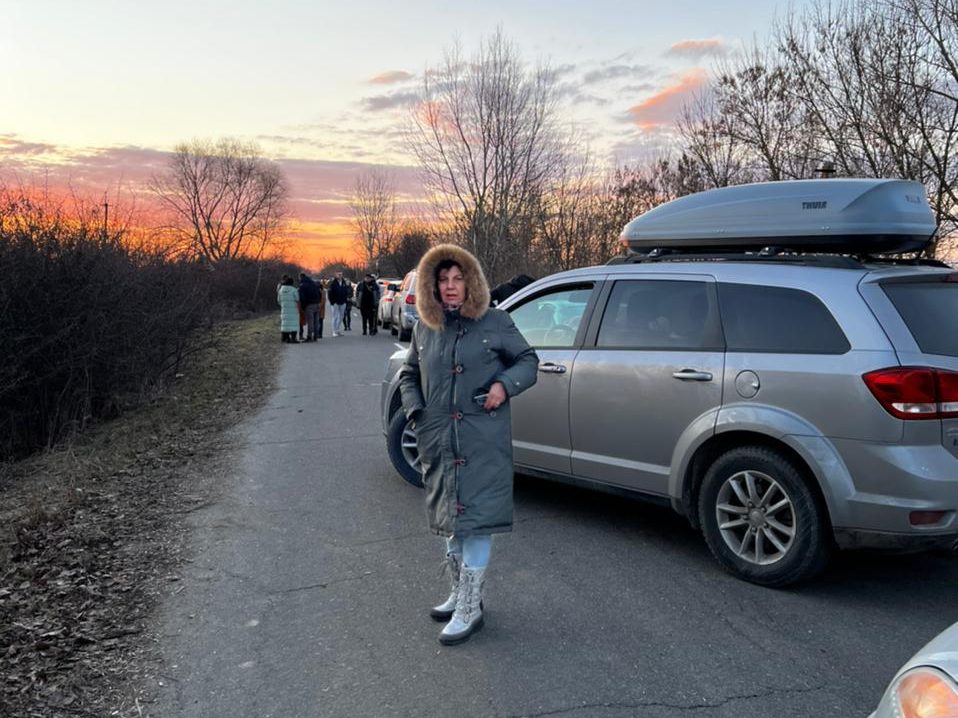
Shkuro says friends stayed behind to take care of elders who cannot drive long distances.
“They are scared, they are still hiding in the basements,” she says, tearing up. “It’s terrible. I’ve been two days in this war and it’s like hell, I don’t know how they are doing mentally.”
Shkuro flew to Miami since tickets were cheaper. She had been a chief stewardess on a private yacht and asked a friend she met on the job if she could stay in her apartment for a while.
“I thought ‘OK, maybe it’s gonna finish in one month or something like Europe is gonna help, U.S. is gonna help,’ but unfortunately no one really cares, everyone is afraid to get involved,” she says.
Now, struggling to obtain a work visa, she is considering going to Europe and getting a work permit there.
“I don’t have enough money to just rent apartments in Miami,” she says. “I don’t know what I will do.”
In the meantime, she, Cocherha and others are supporting Ukraine in every way they can.
Shkuro is collecting money to help zoos, going to protests and translating online updates from Ukrainian into English. Cocherha, a Canada native, has been donating to the Ukrainian Canadian Foundation and Doctors Without Borders.
“It’s so supportive, it helps you emotionally, everyone is praying, everyone is speaking ukrainian, so it’s kind of easier,” Shkuro says.
They also keep each other updated on what’s happening in places mainstream media does not reach.
“One good thing is that the cellphones are still up and running, so we can at least get updates. It’s a good thing in a very bad situation,” Cocherha says. “This is a situation where any information is good.”
Maxfield believes Ukraine will not surrender.
“Everybody wants peace because people are dying every day, but we are not giving up the land,” Maxfield says.
“We want people to know and people do know, and they are reacting and we are happy that American society is really not ignorant, and they are helping, coming, calling, bringing,” she says. “We are happy that we are not alone, and that is important.”
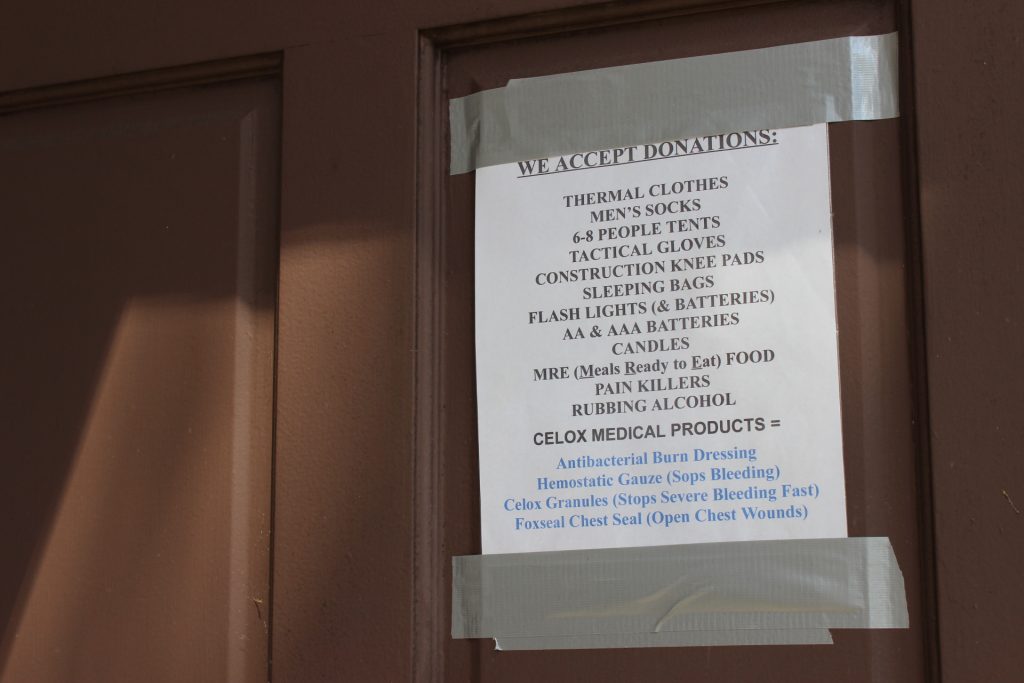
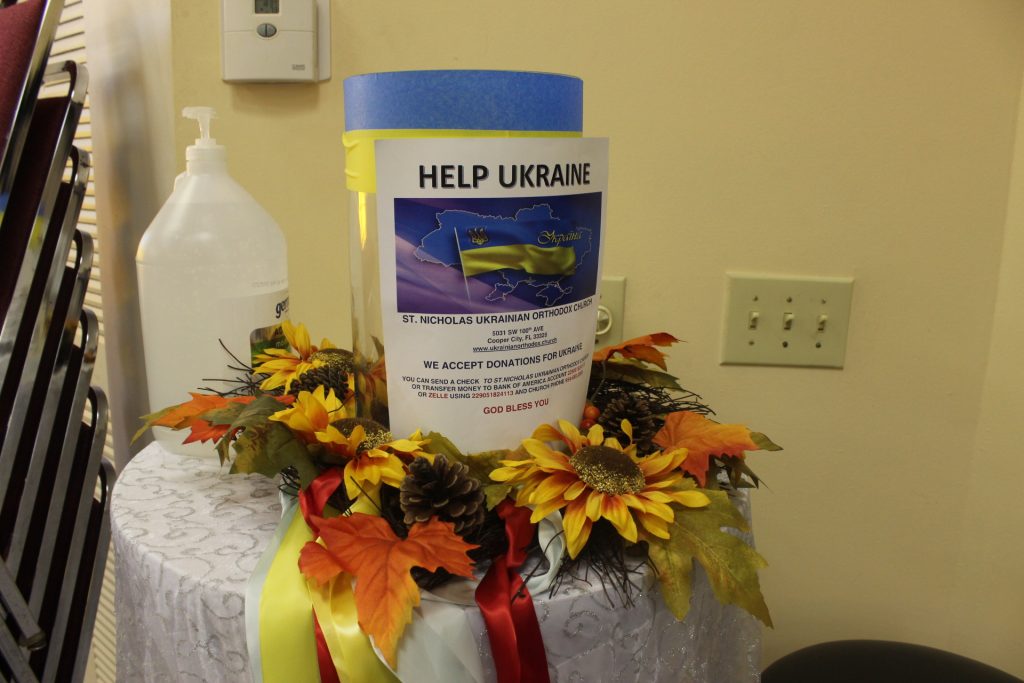
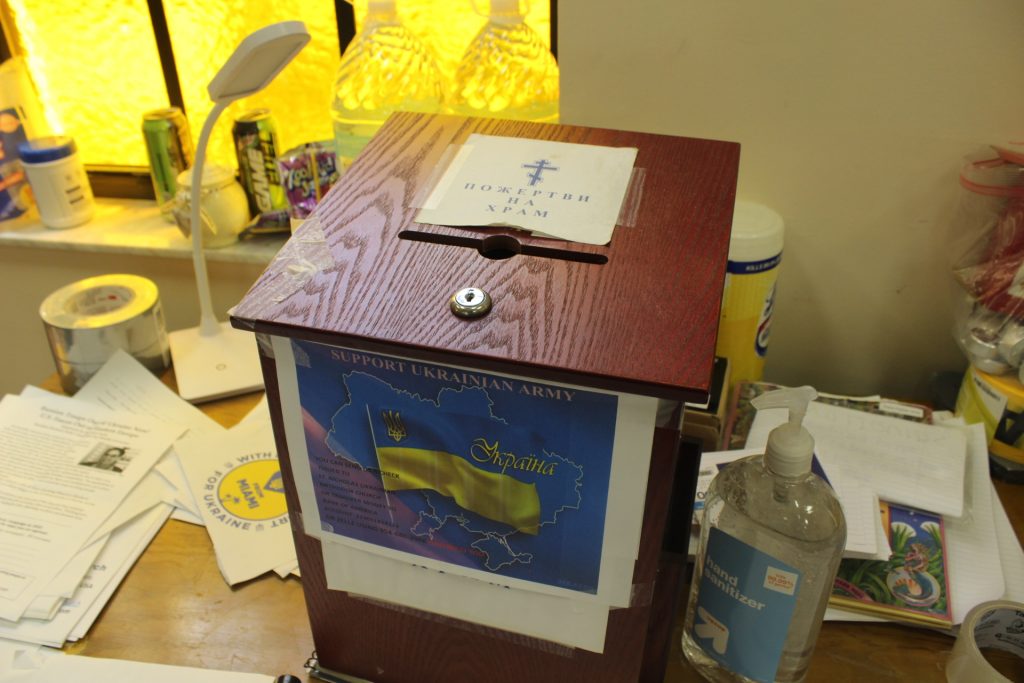
Financial donations can be made through St. Nicholas’ website. Material donations such as sleeping bags, batteries, long-term food and more can be dropped off at the church, 5031 SW 100th Ave, Cooper City, FL 33328, at any time.






























